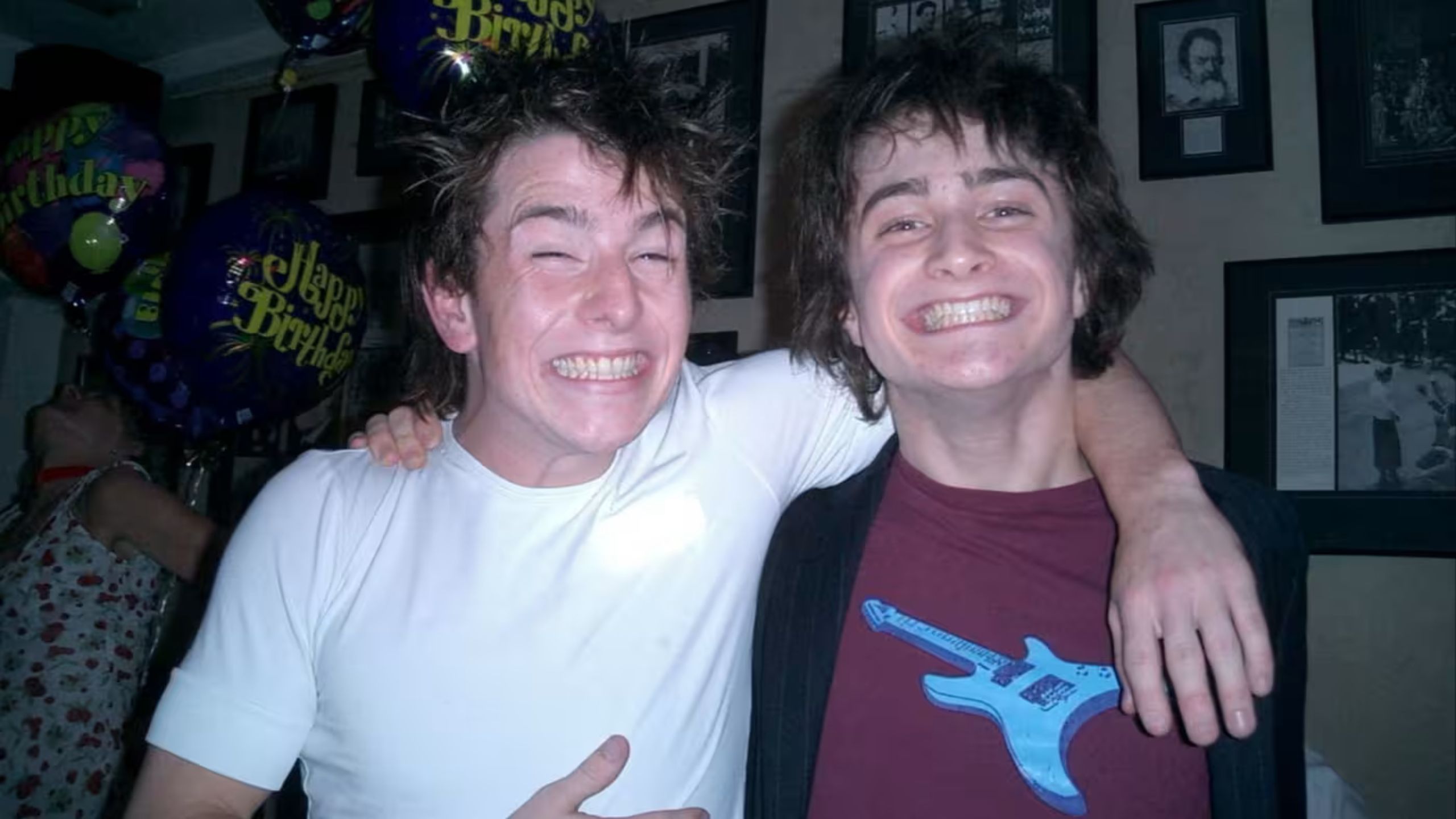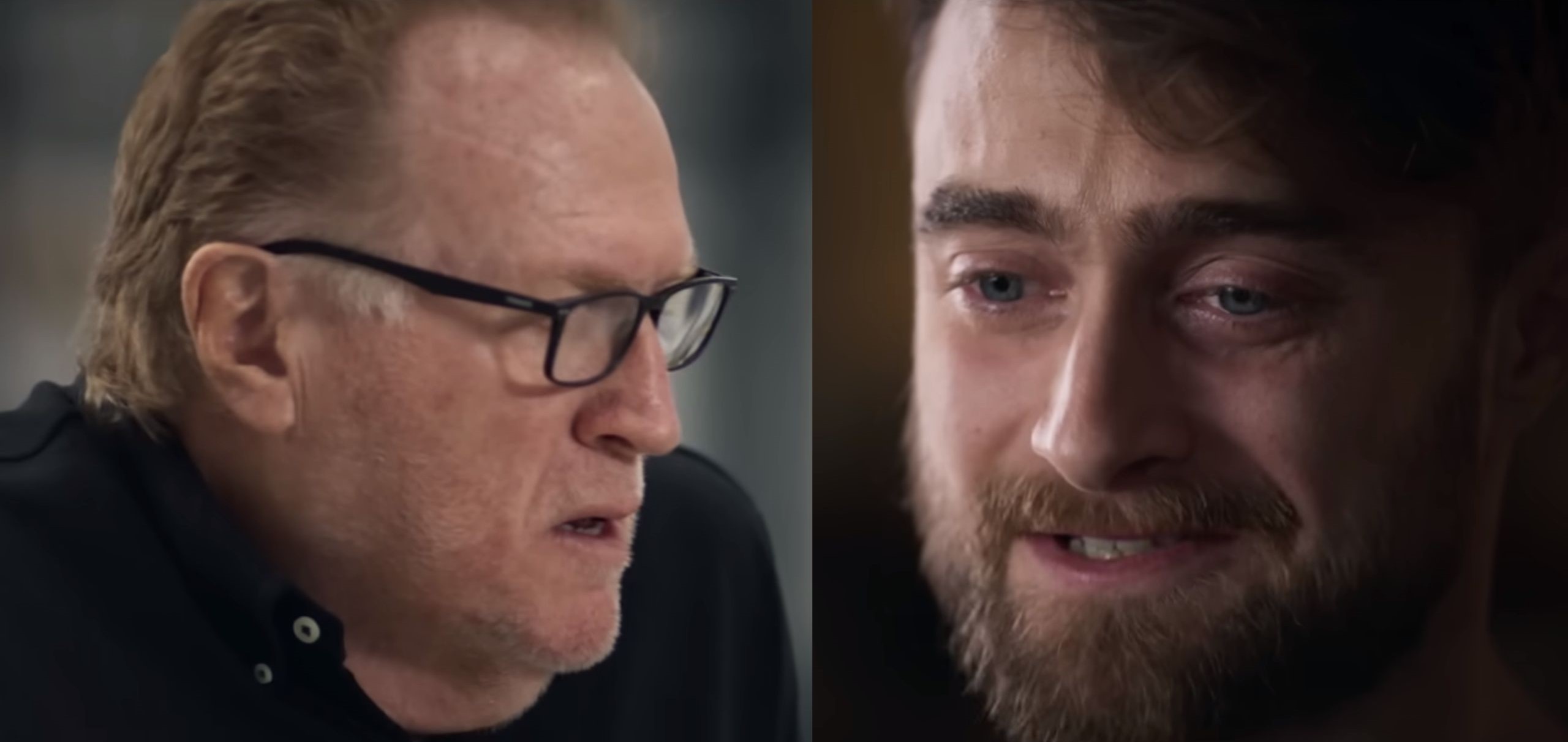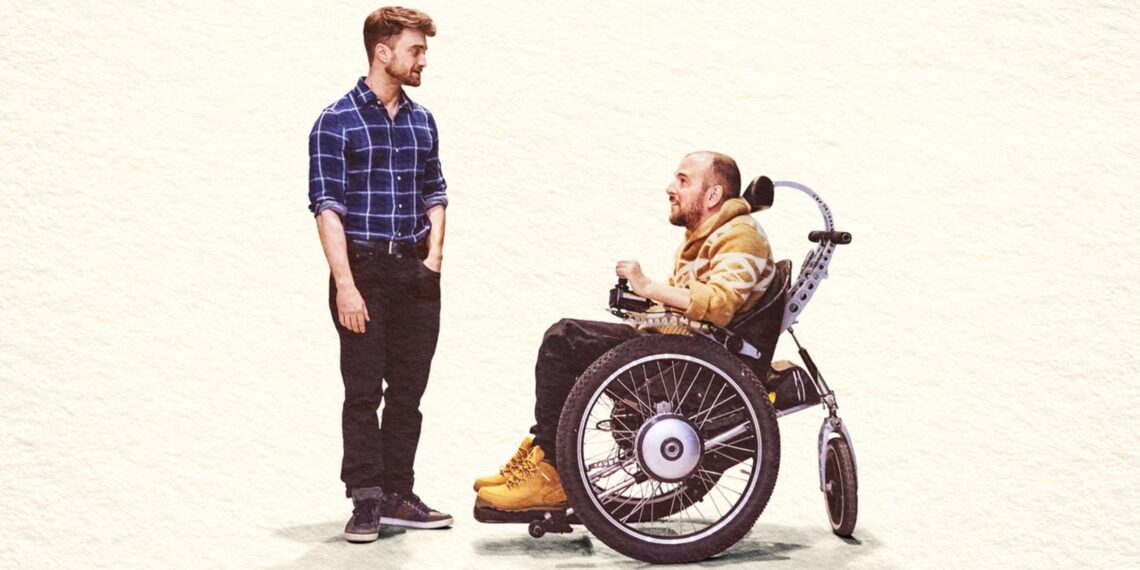When we think of Harry Potter, the face of Daniel Radcliffe automatically pops in front of us, who has become synonymous with the character. Behind the critically acclaimed franchise, however, remains a tragedy that struck his stunt double and friend, David Holmes, leaving him paralyzed for the rest of his life.
David Holmes: The Boy Who Lived is an HBO documentary released on 15 November 2023, and it tells the story of the lead stunt double Radcliffe, the trauma from his tragedy, and their long-lasting friendship that helped David get through it.
In a Q&A for the film, which was documented by Variety, Daniel Radcliffe explained his reason for creating this documentary, saying, “I had always wanted to do something about Dave because I wanted to share him with the world for the person that he is. And Dave’s natural humility meant that he was kind of unsure about that for a while — he wanted to make something broader about stunts in general.
Radcliffe then went on to explain why he wanted to be at the helm but decided not to be the director due to his lack of experience: “Eventually, I sort of convinced him that he should be front and center of it. And we shot some stuff because, for some reason, I thought — having never done anything like this before — that I would know how to direct a documentary. Turns out, I didn’t. At all.”
The position was given to Dan Hartley, an experienced director and producer who was personally involved in the Harry Potter film series as a video assist operator, even working for the spinoff 2016 film Fantastic Beasts and Where to Find Them.
Daniel Radcliffe, on the other hand, became the film’s executive producer and a prominent feature in the film as David’s friend.

The Boy Who Lived
David Holmes is a former actor and stunt performer known best for his performance as the stunt double of Daniel Radcliffe in the first six films of the Harry Potter series. In January 2009, Holmes’ career took a terrible turn on the set of Harry Potter and the Deathly Hallows: Part 1.
David’s life changed forever when he was put in a wired harness, ready to be jerked back into a padded wall by a pulley, but the weights attached to it were too heavy. He snapped his neck, injuring his spine, and was left entirely paralyzed in his lower body. He was also diagnosed with a cyst, which is slowly making him lose mobility in his arms, consequently diminishing his health.
The film showcases a stoic realization of David’s irreversible loss of mobility and freedom, as he expresses how “I used to fly . . . not so much anymore”. However, Holmes does not dwell on the devastating injury, instead choosing to live with the purpose of spreading awareness about the dangers stunt actors face behind the realistic portrayal of action scenes in movies.

The Beauty of the Documentary
David Holmes was a personal trainer, a close friend, and an older brother figure to Radcliffe, and he taught him how to perform the stunts more convincingly on set while also having fun. The Harry Potter actor thus felt a need to “share him with the world for the person that he is.”
Radcliffe recalls visiting Holmes at the hospital after the incident, scared for the future of their friendship, feeling “What if it never feels normal again?” Radcliffe also talks about his maturity in learning how to support Holmes “when life is just about being there for people, not about fixing anything.”
Interviews with stunt coordinator Greg Powell, who was in charge on the day of the tragedy, portray how difficult it is to live with the guilt of feeling like “I fucked his life right up. He’d have been doing anything he liked now.”
Powell loves Holmes like a son, but he also bears the heavy burden of responsibility for his accident, which is shown in the documentary as he breaks down, expressing how “I wish I’d never met him,” feeling that without his misjudgment of the stunt weights, Holmes would have had a much better life.
David Holmes: The Boy Who Lived is a documentary that focuses on raising awareness about the severely dangerous yet highly unrecognized work of stunt performers in the film industry while also reflecting on how friends and family cope and heal through the consequences of such a life-changing accident.




